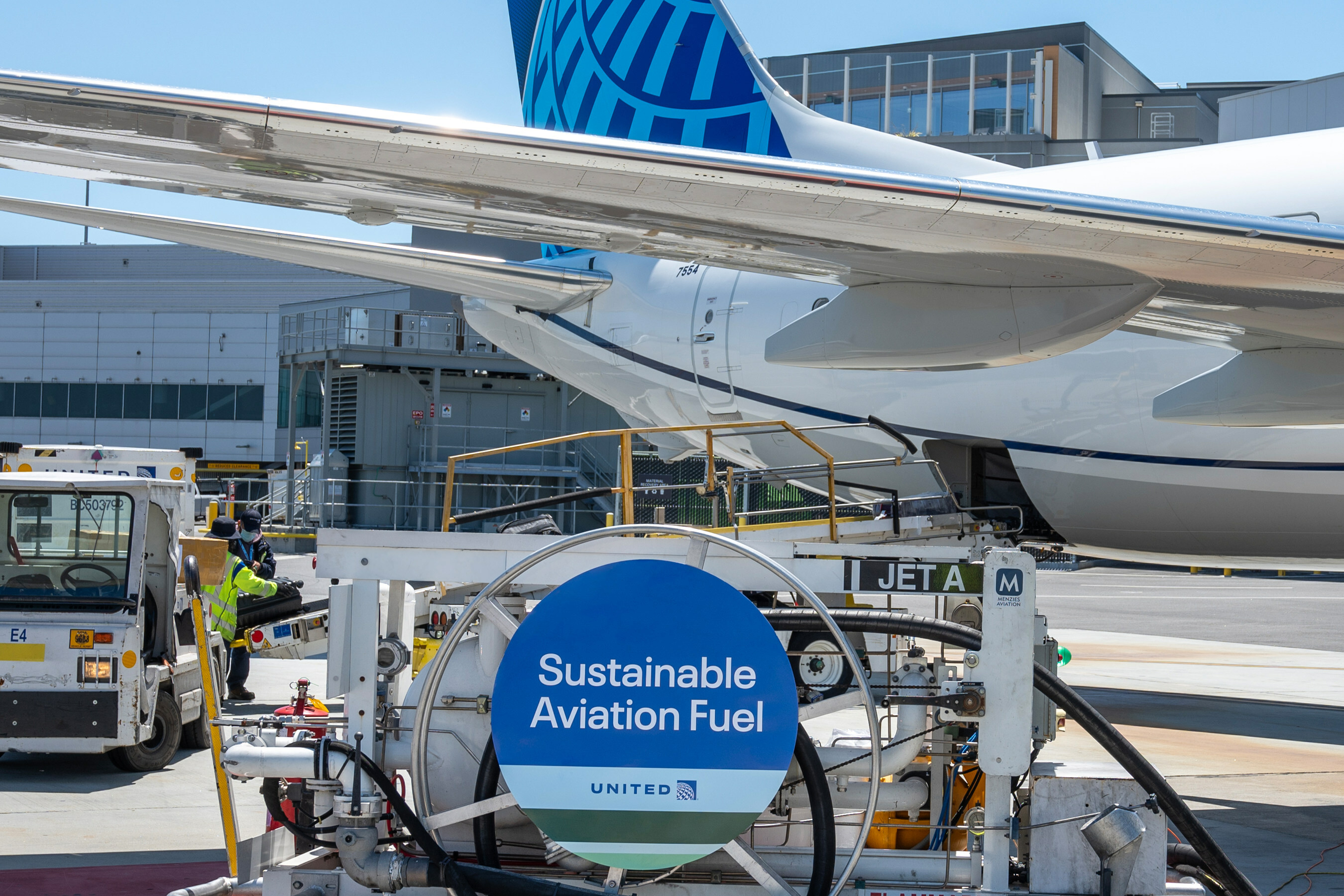United Airlines announced on Tuesday a significant reduction in its aircraft delivery expectations for the year, citing ongoing delays from Boeing as the primary cause. Initially anticipating the arrival of 101 new narrow-body planes, the airline has adjusted this number to 61.
This change comes amidst a backdrop of challenges and scrutiny facing Boeing, affecting airlines' growth strategies.
Strategic Shifts and Financial Impact
CNBC reported that in response to the delivery delays and to accommodate future growth plans, United's CEO Scott Kirby said that they've adjusted their fleet plan to better reflect the reality of what the manufacturers can deliver. Part of this strategy includes capitalizing on the airline's unique positioning by expanding its mid-continent hubs and international network from its coastal hubs.
Additionally, United plans to lease 35 Airbus A321neos for 2026 and 2027, further diversifying its fleet amid Boeing's production caps.
Reuters noted that the airline also reduced its annual capital expenditure forecast to $6.5 billion, down from the approximate $9 billion initially projected. This adjustment reflects the broader strategy to manage growth in light of manufacturing constraints.
Regulatory Reviews and Service Delays
Amid these strategic shifts, United faces scrutiny from the Federal Aviation Administration (FAA), affecting its planned expansion. A spokeswoman revealed that certain services, including flights from Newark to Portugal and Tokyo to the Philippines, have been postponed due to this regulatory review. The airline also delayed its investor day, emphasizing its commitment to addressing safety protocol reviews with the FAA.
First Quarter Performance and Outlook
Despite a net loss of $124 million this quarter, United Airlines reported a nearly 10% increase in revenue compared to last year, showcasing resilience in operational performance. The airline anticipates earnings of between $3.75 and $4.25 per share in the second quarter, surpassing Wall Street expectations.
Looking forward, United remains optimistic, maintaining its full-year earnings forecast and experiencing a more than 4% increase in after-hours trading on Tuesday. This resilience, amid regulatory and manufacturing challenges, underscores United's strategic adaptability in a volatile industry landscape.
Photo: PR Newswire



 Toyota’s Surprise CEO Change Signals Strategic Shift Amid Global Auto Turmoil
Toyota’s Surprise CEO Change Signals Strategic Shift Amid Global Auto Turmoil  SoftBank Shares Slide After Arm Earnings Miss Fuels Tech Stock Sell-Off
SoftBank Shares Slide After Arm Earnings Miss Fuels Tech Stock Sell-Off  Once Upon a Farm Raises Nearly $198 Million in IPO, Valued at Over $724 Million
Once Upon a Farm Raises Nearly $198 Million in IPO, Valued at Over $724 Million  Baidu Approves $5 Billion Share Buyback and Plans First-Ever Dividend in 2026
Baidu Approves $5 Billion Share Buyback and Plans First-Ever Dividend in 2026  CK Hutchison Launches Arbitration After Panama Court Revokes Canal Port Licences
CK Hutchison Launches Arbitration After Panama Court Revokes Canal Port Licences  OpenAI Expands Enterprise AI Strategy With Major Hiring Push Ahead of New Business Offering
OpenAI Expands Enterprise AI Strategy With Major Hiring Push Ahead of New Business Offering  Rio Tinto Shares Hit Record High After Ending Glencore Merger Talks
Rio Tinto Shares Hit Record High After Ending Glencore Merger Talks  Sony Q3 Profit Jumps on Gaming and Image Sensors, Full-Year Outlook Raised
Sony Q3 Profit Jumps on Gaming and Image Sensors, Full-Year Outlook Raised  Nasdaq Proposes Fast-Track Rule to Accelerate Index Inclusion for Major New Listings
Nasdaq Proposes Fast-Track Rule to Accelerate Index Inclusion for Major New Listings  Washington Post Publisher Will Lewis Steps Down After Layoffs
Washington Post Publisher Will Lewis Steps Down After Layoffs  FDA Targets Hims & Hers Over $49 Weight-Loss Pill, Raising Legal and Safety Concerns
FDA Targets Hims & Hers Over $49 Weight-Loss Pill, Raising Legal and Safety Concerns  Weight-Loss Drug Ads Take Over the Super Bowl as Pharma Embraces Direct-to-Consumer Marketing
Weight-Loss Drug Ads Take Over the Super Bowl as Pharma Embraces Direct-to-Consumer Marketing  Tencent Shares Slide After WeChat Restricts YuanBao AI Promotional Links
Tencent Shares Slide After WeChat Restricts YuanBao AI Promotional Links  American Airlines CEO to Meet Pilots Union Amid Storm Response and Financial Concerns
American Airlines CEO to Meet Pilots Union Amid Storm Response and Financial Concerns  SpaceX Pushes for Early Stock Index Inclusion Ahead of Potential Record-Breaking IPO
SpaceX Pushes for Early Stock Index Inclusion Ahead of Potential Record-Breaking IPO  Ford and Geely Explore Strategic Manufacturing Partnership in Europe
Ford and Geely Explore Strategic Manufacturing Partnership in Europe  SpaceX Prioritizes Moon Mission Before Mars as Starship Development Accelerates
SpaceX Prioritizes Moon Mission Before Mars as Starship Development Accelerates 































